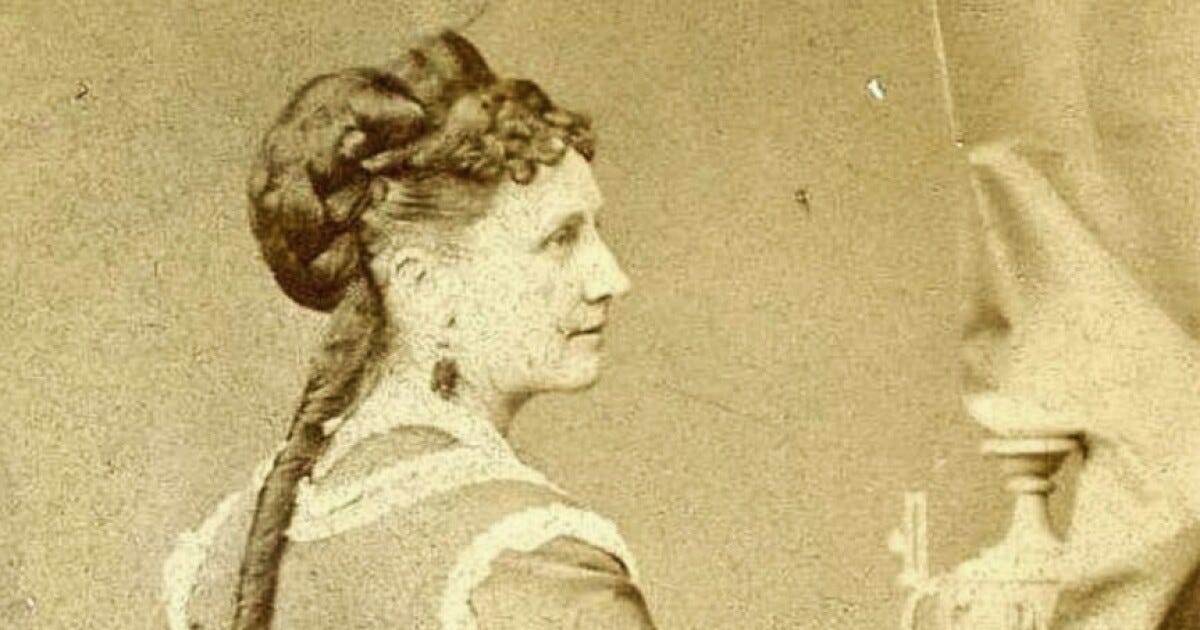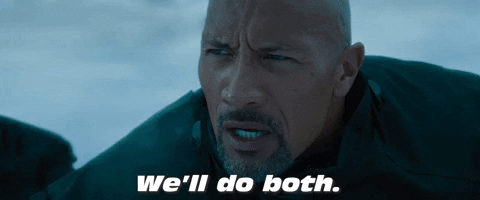Climate Solutions // I S S U E # 7 0 // S O L U T I O N S
Hothouse is original climate journalism with a way to act. As a climate solutions newsletter, we dig into the evidence, figure out what works, and deliver the news to your inbox. Subscribe here.
A few years ago, I was studying for a master’s degree. I went back to school after producing CNN.com’s first special report on climate change and realizing I didn’t understand what I was talking about. I remember checking out an old book from the library to study up on the subject. I learned, shocked, that John Tyndall first hypothesized and then proved in 1861 how the atmosphere would likely heat up after pumping it full of greenhouse gases (Later, I found a woman, Eunice Foote, discovered this first).

Our certainty has only grown since then: the Keeling curve, James Hansen’s testimony to Congress in 1988, the IPCC reports, and now extreme weather outside our windows confirms what Foote concluded in 1856, “an atmosphere of [carbon dioxide] gas would give to our earth a high temperature.”
Knowledge is easier to keep at bay if you aren’t confronted with it every day. But that became impossible in graduate school. Lecturer after lecturer came to campus to share their data. I remember watching slides in the dark recesses of old buildings at the Yale School of Forestry and feeling like I was in a doomsday movie. We knew the ending, but couldn’t convince anyone else of the plot. An eerie sort of calm would sometimes settle on the room, not unlike the quiet I remember growing up in Florida when a hurricane brewing off the coast hadn’t yet arrived.
I bring all this up because a study came out recently asking why people don’t participate in political climate action. It’s significant because, well, most people don’t. In the US, only 19% of Americans contacted an elected official to support a cause they cared about in the past year. For climate change, it was 13%.
So the authors surveyed 1,029 representative Americans to understand just what was the hold-up. Their findings honed in on something called “felt responsibility:” the need we feel to translate our beliefs and attitudes into sustained action. “I should get in shape,” I might say. But how do I make myself go to the gym? The researchers found this sense of felt responsibility was “significantly correlated” with intent to get involved in climate politics, but it didn’t predict past behavior. That is, people really wanted to do something, they just hadn’t yet. The reason? All those little barriers standing between “want” and “do.” People report those blockers are surprisingly prosaic: nobody asked them to do it, not knowing whom to contact, and not seeing onself as as an activist.
So the next time you feel an uncomfortable gap between what you want to do, and what you are doing, remember it’s not the size of the gap. It is the small things standing in your way. Remove those, and the rest tends to follow.
If you feel so moved, one nearly effortless way is to join our friends at Climate Changemakers. Just sign up for an hour of action. They’ll take care of the rest. Your elected officials are waiting to hear from you.
Stick around to see what we have in store for you at Hothouse below.
Mike Coren
Solutions Survey Results
A few weeks back, we dispatched an email with the subject line “A Modest Request” to your inbox. As we wrote, a little over a year into the experiment of Hothouse, we believe we’ve landed on a solid editorial formula.
We’re now turning our attention to helping you integrate those solutions in your own life, community, or office, eventually leading to the systematic change we need.
A whopping 43 of you took the time to give us your thoughts, and even leave us some lovely words of encouragement (thank you, Stephanie!). As the results will reveal, you’re an ambitious bunch. We initially laid out four options. A quick refresher:
🗂 The index card option: conclusions into a format that fits on an index card. It’s short, sweet, and to the bullet point.
🏛 The blueprint option: We go deep. Each “blueprint” offers a detailed roadmap about a specific topic to take the smallest/largest possible step
📝 The resource page option: We catalog the links, resources, and tips you need
☎️ Office hours option: We talk to you: line up experts, reporters, and others to answer questions.
There were some clear answers, and plenty of enthusiasm: “Honestly, I’d love BOTH a blueprint and a resource page!!!” one of you gushed (and many agreed).
A different reader asked for a method for us to collectively track our solutions and impact. And yet another asked for more “ways to shop, travel guides, things to buy so I don’t have to do so much thinking about every purchase or thing I do,” and that they would like “something more editorially done versus a list of links or outlines.” Another suggested we host chats with not only experts, but individuals or other readers who have successfully implemented a solution in their life to hear their experiences and lessons learned (we love this idea, and we’re drafting you first).
To sum it up, the survey results indicated Index Cards and Blueprints were your top picks for delivering solutions: 33 marking these as your first or second choice. We heard you:
Between the two, Index Cards performed slightly better, with 22 marking Index Cards as your first choice, and 15 selecting Blueprints. So we’ll start there. Our next round of newsletters will experiment with these formats. (And you can still respond to the survey here).
As for what not to do, another reader voiced dislike of the many graphs that pepper some Hothouse newsletters: “More inspiring pictures, fewer graphs (if possible). They scare me and put me to sleep.” (This post really needed a graph, but noted!) Numerous write-in responses also suggested we create podcasts or produce short, sharable videos.
We’ll wrap this up with two things we’re offering you now:
Office Hours: We’re already implementing this! Mike Coren and popular meteorologist Eric Holthaus of The Phoenix will be hosting a live event next Tuesday, April 19, on climate journalism. We’re meeting on Twitter Spaces (save this link) at 7 p.m. Eastern. Set yourself a reminder to join us here.
How-to guide: We are pleased to partner with YellowTin, which is offering the Hothouse community a no-cost way to identify how to electrify your own life. Whether it’s driving an electric vehicle or riding an e-bike, installing a heat pump, solar panels, or making the switch to an induction cooktop, YellowTin gives you customized guide for both carbon and cost savings. You answer some basic question and get personalized recommendations on how to ditch fossil fuels. We took it for a spin, and this was the best home electrification platform we’ve found so far. Sign up here to get started.
If you come across any other tools or services that you think might make a good fit for Hothouse to share with the community, please let us know. Got ideas bubbling already? Share them in the comment section below. As always, you can reach out to us with your ideas anytime at editors@hothouse.solutions.
Let’s do this thing,
Cadence Bambenek and Mike Coren
Hothouse is a weekly climate action newsletter written and edited by Mike Coren and Cadence Bambenek. We rely on readers to support us, and everything we publish is free to read. Follow us on Twitter or LinkedIn.









Apple Pay was the only payment option offered for a subscription. I’d rather do a credit card
Great one